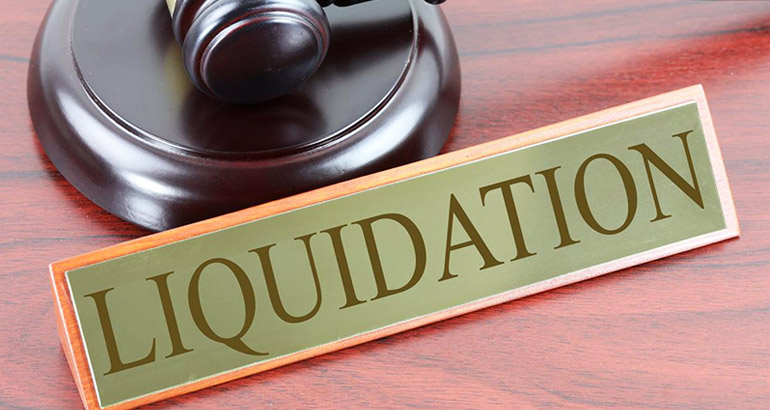Little Known Questions About Company Liquidation.
Little Known Questions About Company Liquidation.
Blog Article
Company Liquidation Can Be Fun For Everyone
Table of ContentsExamine This Report about Company LiquidationGetting The Company Liquidation To WorkGet This Report about Company LiquidationThe 10-Minute Rule for Company LiquidationThe 7-Second Trick For Company Liquidation
A liquidator is specifically selected to supervise the winding up of a business's affairs in order for it to be folded generally when the firm is declaring bankruptcy. The liquidator is a neutral 3rd party that oversees the sale of company assets in order to settle any arrearages.Their function includes, however is not restricted to: Neutral Overseer: A liquidator is tasked with acting as a neutral third event to look after the entire company liquidation procedure. Create Statement of Affairs: Liquidators have to produce a thorough statement of affairs document. This file is distributed to financial institutions, describing the current financial standing of the organization at the time of its liquidation.
After the liquidation of a firm, its existence is erased from Companies House and it discontinues to be a lawful entity. If supervisors browsed the procedure without issue, there would certainly be no penalties or individual obligation for strong financial debts anticipated. Now, with a fresh start, supervisors can discover brand-new service opportunities, though specialist assessment is advisable.
The smart Trick of Company Liquidation That Nobody is Discussing
If more than 90% of all business shareholders agree, liquidation can take place on short notification within 7 days, the minimal statutory notice for lenders. Normally, the larger the liquidation and the even more assets and funding the service has, the longer the process will certainly take. 'Do I need to pay to liquidate my business?', the solution will rely on whether your service has any type of assets leftover when selling off.

We understand that no two firms coincide, which is why we will make the effort to learn more about your company so we can suggest the very best strategy for you. We only work in your benefits, so you can be totally positive in the solution we supply.
The 15-Second Trick For Company Liquidation
In the UK, there is a set procedure to closing down or restructuring a minimal company, whether it is solvent or financially troubled. This process is recognized as liquidation and can just be taken care of by an accredited bankruptcy professional (IP) based on the Insolvency Act 1986. There are 4 main kinds of business liquidation procedure: Lenders' Voluntary Liquidation (CVL); Mandatory liquidation; Administration; and article Participants' Volunteer Liquidation (MVL).

In these conditions, it is very important that the business stops trading; if the company remains to trade, the supervisors might be held directly responsible and it might result in the insolvency expert reporting wrongful trading, called misfeasance, which might lead to lawsuit. The directors select an insolvency professional and as soon as this has been concurred and verified, there is a conference with the shareholders.
The directors are no longer involved in what takes place, including the sale of the business's assets. If the supervisors desire any of the properties, they can notify the IP.
The Main Principles Of Company Liquidation
The primary difference is that the firm's creditors applied to the court for a winding up order which compels the bankrupt firm into a liquidation process. For the most part, creditors take this activity as a last option due to the fact that they haven't gotten repayment through other kinds of arrangement. The court look at this website designates an insolvency professional, likewise referred to as a main receiver, to carry out the compulsory firm liquidation process.
This kind of firm liquidation is not volunteer and supervisors' conduct is reported to the UK's Secretary of State once the liquidation process has actually been finished. Any supervisor that falls short to read this coordinate with the IP or has actually been included in director misbehavior, or a deceitful act, might result in severe repercussions.
It is utilized as a means to secure the business from any type of legal action by its financial institutions. The supervisors of the firm concur to make normal settlements to settle their financial obligations over a period of time.
The Main Principles Of Company Liquidation
This offers the business with time to develop a strategy moving forward to rescue the business and prevent liquidation. Nevertheless, now, directors hand control of the company over to the assigned administrator. If a firm is solvent yet the supervisors and shareholders intend to close business, a Members Voluntary Liquidation is the right option.
The company liquidation procedure is handled by a liquidator designated by the supervisors and shareholders of the firm and they need to authorize a statement that there are no creditors remaining. The liquidation procedure for an MVL is similar to that of a CVL in that assets are know however the proceeds are distributed to the supervisors and the investors of the firm after the liquidator's costs have been paid.
Report this page